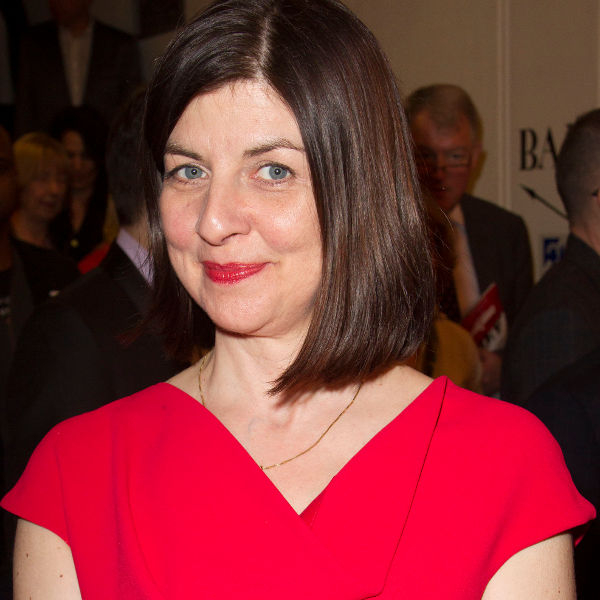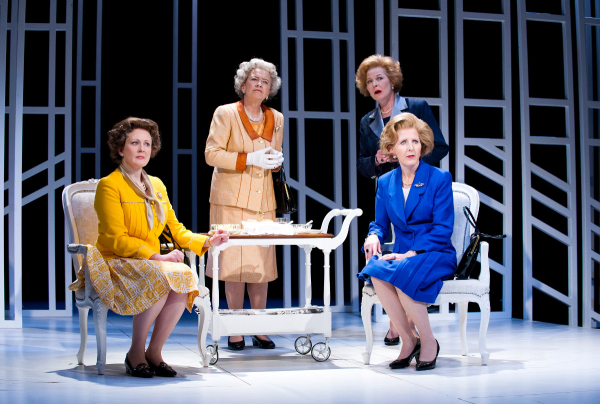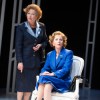Moira Buffini: 'I set out to be fair to Margaret Thatcher'
Moira Buffini discusses ”Handbagged”’s long journey to the West End, and why she’s writing about nuclear power for the National Theatre

© Dan Wooller
How does it feel to bring Handbagged to the West End?
It's great. The play had very humble beginnings, as a half hour piece as part of the Tricycle's Women, Power and Politics season, so to be bringing it to a major West End theatre is a strange but wonderful thing. It's great for the Tricycle too, which is really riding high currently.
You've previously said the premiere of the play was postponed due to The Audience
I don't think we ever felt hard done by The Audience – I think they're very different plays. But I think we were wise not to have two different performances of the Queen and Mrs Thatcher vying for attention in the West End.
How long have you wanted to write about Margaret Thatcher?
When I was asked to write a play for Women, Power and Politics I immediately knew I had to write about her. She was such an influential figure in British politics, and it's only in the last few years we've begun to fully understand what her impact has been. I've been reading biographies of her for years, and I think she deserves to be continually debated. After she died the debate was rather one-sided in her favour, which made me want to stage the play even more. I'm sure this is not the last time I'll write about her.
How do you think the current government compares to hers?
I think they're just as brutal – look at the recent policy to deny prisoners access to books – but with a friendlier face, which is somehow more sinister.
How do you answer criticism you're writing with a left-wing bias?
I set out to be fair to Margaret Thatcher, and I think the fact the right wing press reacted so favourably to the play shows that to some extent I've achieved that. Even if you don't like where I'm coming from politically, I hope that I'm respectful to Mrs Thatcher, and to the Queen, as human beings. I think you can be irreverent about someone without being disrespectful.

© Tristram Kenton
How impressed were you by the cast's interpretations of the two women?
From the first read through I got shivers down my spine. I think their performances are so much more than impersonations, they really embody those women and have made them their own. Stella Gonet's Mrs Thatcher, for example, is slightly different to Fenella Woolgar's, but they're both unmistakably her. I get such pleasure from watching them, and the two boys provide a fantastic foil as well.
How confident are you that Handbagged will appeal to a broader West End audience?
I'd say whatever your political background, you won't be bored for a second. You may agree, or you may disagree entirely, but you'll definitely be entertained. I'm very proud of it as a piece of theatre. At the Tricycle we had people booing and cheering and that's what it's all about – to spark debate and discussion.
What else are you working on currently?
I'm up to my eyeballs in film work. I've got two currently in production – Tulip Fever, which I wrote with Tom Stoppard, and a film called The Dig starring Cate Blanchett. I've also got a play going on at the National next year called The Zone, which will hopefully run as part of Rufus Norris' first season.
Can you tell us more about The Zone?
It imagines a Fukushima-type disaster in the UK. Something this government are doing very, very quietly is investing billions in nuclear power. It may be low on carbon emissions, but the catastrophe when it goes wrong is something that needs to be discussed.
Does it follow on from your last project at the National, Greenland?
I realised when I was doing Greenland that writing rapid response, current affairs material was not my particular strength. I'll never be a Westminster political satirist, I require too much retrospective thinking. It took me a long time to realise what the play I really wanted to write about the environment is, and it's The Zone.













